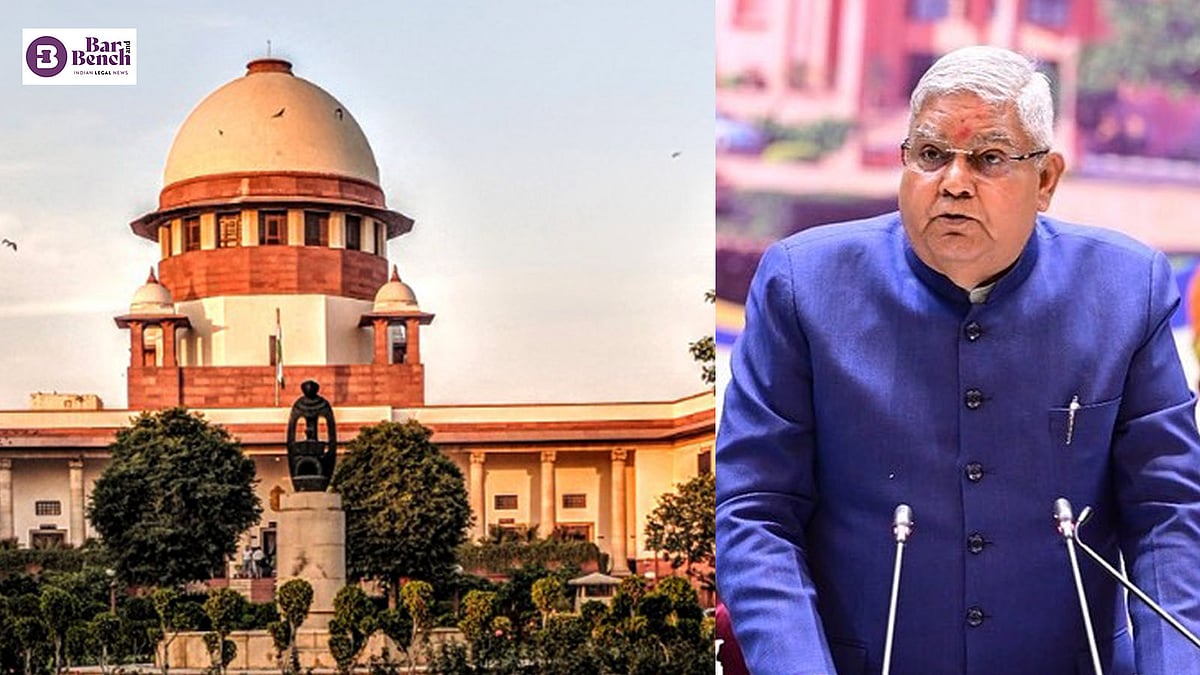As members of the media, we have taken it upon ourselves to write a series of editorials and legally sound articles that place facts before the people, upholding the democratic principles that all Constitutional institutions must strictly adhere to. The boundaries between the Legislature, Executive, and Judiciary are clearly defined, and no institution has the authority to exceed its brief. However, for the first time in independent India’s history, the Judiciary appears to have crossed that line, not just in the perception of legislators, but also among members of the Executive, besides people across the country. The Supreme Court’s recent ruling, which seemingly encroaches upon the powers of none other than the Governor and the President, has brought this issue to a flashpoint. In our humble effort to inform our growing readership, this e-paper will continue its series of editorials and articles on the matter until greater constitutional wisdom prevails across all three pillars of our democracy. – EDITOR
—
In a democracy governed by the Constitution, supremacy must lie with the people — and through them, their elected representatives. That principle now appears to be under siege.
Vice President Jagdeep Dhankhar, also the Chairman of the Rajya Sabha and a seasoned constitutional expert, has reignited a debate that many in the ruling establishment, and outside it, have been quietly brooding over: has the Indian judiciary overstepped its constitutional limits? Has it started to function as an unelected super-legislature?
Dhankhar’s remarks, made in response to a recent Supreme Court judgment in the State of Tamil Nadu vs Governor case, have stirred up a necessary storm. The Court ruled that if the Governor or President does not act on Bills passed by a state legislature within a “reasonable” timeframe, such inaction could be construed as assent. This, in Dhankhar’s view, is a dangerous rewriting of the Constitution. And he’s not alone. A growing number of constitutional experts, lawmakers, and journalists are echoing similar concerns — that the judiciary, in the name of activism, is drifting into judicial imperialism.
The question is not whether the judiciary has a role in keeping the executive and legislature in check. It does — but only within the bounds of the Constitution. Article 50 of the Constitution mandates a separation of the judiciary from the executive. But equally, Articles 74 and 111 define the role of the President, guided by the Council of Ministers, and nowhere do they authorize the judiciary to impose deadlines or interpret silence as assent.
If judicial delay cannot be interpreted as denial, why should executive or gubernatorial delay be deemed approval?

When courts begin instructing the highest constitutional offices — the President and Governors — to act within timeframes not specified in the Constitution, it sets a dangerous precedent. These offices are not subordinate to the judiciary. Article 53 vests executive power in the President, and the President acts on the aid and advice of the Cabinet. The Governor, similarly, functions under Article 154. Both are accountable to the legislature, not the judiciary. The Supreme Court’s ruling risks turning constitutional decorum on its head.
More troublingly, the judiciary now appears to be policing speech, not just laws. A recent petition was entertained against BJP MP Nishikant Dubey for his alleged critical remarks about the Chief Justice. Whether one agrees with Dubey or not, freedom of speech — even unpleasant or harsh — is protected under Article 19(1)(a). Unless it crosses the threshold of contempt as defined under Article 129 or 142, the judiciary has no business gagging lawmakers.
Yet, Dubey’s comments are being treated as though they threaten the republic, while thousands of pending criminal cases, civil disputes, and constitutional challenges languish in the system.
Dhankhar rightly pointed out the growing tendency of the judiciary to not just interpret law but to legislate and even direct executive functions. “We never bargained for a democracy where judges legislate and act as a super Parliament,” he said. Indeed, that would be a democracy in name only.
Let us be clear: the Constitution does not envisage any authority above Parliament. Article 79 begins by recognizing Parliament as consisting of the President and the two Houses. Nowhere is the judiciary granted superiority over it. Judicial review under Article 13 is a safeguard against unconstitutional laws, not a license to rewrite governance.
Yet, today, the Court has wandered into policy-making, budget management, and even religious customs — domains clearly outside its purview. It decides what festivals should be celebrated how, how government advertisements should appear, and how many years a Chief Secretary must serve. This is not activism. This is overreach.
The Constitution provides a remedy for such transgressions. Article 124(4) and Article 217(1)(b) allow for the impeachment of judges who violate their constitutional oath. If a judge is persistently and wilfully exceeding their brief and indulging in conduct unbecoming of a neutral arbiter, Parliament must not remain a silent spectator. At the very least, robust legislative debate must be initiated on these encroachments.
The Fourth Estate, too, must find its voice again. Several senior journalists have already raised red flags over this creeping judicial authoritarianism. Their warnings cannot be brushed aside as partisan noise.
It’s time to reassert a basic democratic truth: the judiciary interprets the law, not enacts it; the President and Governor are constitutional authorities, not court clerks; and Parliament, answerable to the people, is — and must remain — supreme.
Otherwise, we risk waking up one day in a democracy ruled not by those we elect, but by those no one ever did.





